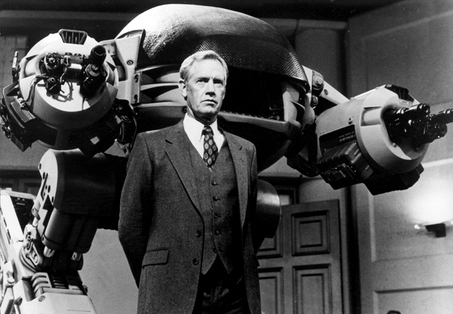Some things take on a life of their own, even when they’re not actually living. AI will likely slot into this category.
When Bill Gates suggests America tax robots not only to provide opportunities to those squeezed from the middle class but to also slow down innovation, he’s analyzing the situation as it if it existed inside a vacuum. That’s not the way technology proceeds.
Developing new tools is part of a constant competition among and within states and corporations. Innovating is paramount to maintaining a competitive edge in the marketplace or battlefield. Of course, holding your position or gaining an advantage means a nation (or nations) may be careering down a perilous path. Being militarily prepared for danger can, paradoxically, be very dangerous. The same will be true of biotech.
From Morgan Chalfant’s The Hill story about the surprising speed with which robotic soldiers may be reporting for duty:
Peter Singer, a strategist at the New America Foundation, said that artificial intelligence is among potential “disruptions” being developed in the realm of cyber conflict.
“It’s not just when is it going to happen, but we don’t yet know is it going to privilege the offense or defense, what are going to be the affects of it,” Singer said, recommending that Congress hold a classified hearing on where the U.S. stands in comparison to likely adversaries on this capability.
“We don’t want to fall behind,” he said.
Healey expressed concerns about the possibility of artificial intelligence augmenting our adversaries’ offensive capabilities more significantly than the United States’ defense of its critical infrastructure.
“The part of it that particularly worries me the most is that on the defensive side many people are thinking that artificial intelligence, new heuristics, better analytics and automation are going to help the defense, that if only we can roll these things out faster we will be better and the system will be more stable,” Healey explained.
“I think that these technologies are going to aid the offense much more than it aids the defense because to defend against these kinds of attacks, you need your own super computer,” he continued.
Healey warned that while the Pentagon can afford computer systems necessary to defend against adversaries using artificial intelligence, small- or mid-sized enterprises that own U.S. critical infrastructure cannot.
“It leaves much of America undefended,” he said.•
Tags: Morgan Chalfant

